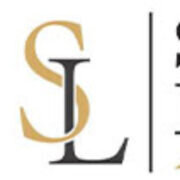Best Art & Cultural Property Law Lawyers in Delhi
Share your needs with us, get contacted by law firms.
Free. Takes 2 min.
List of the best lawyers in Delhi, India
About Art & Cultural Property Law in Delhi, India
Art & Cultural Property Law in Delhi, India, encompasses the legal framework governing the creation, ownership, protection, and preservation of art and cultural heritage. This field of law includes issues like intellectual property rights, historical artefacts, cultural heritage site management, and illicit trafficking of cultural items. The laws aim to balance the interests of creators, collectors, museums, and the state in protecting their cultural and artistic heritage.
Why You May Need a Lawyer
There are several scenarios where individuals or organizations may require legal assistance in Art & Cultural Property Law:
- Acquisition and Sale: Legal advice may be needed to navigate the purchase or sale of art pieces or artefacts, ensuring compliance with local and international laws.
- Ownership Disputes: Lawyers can assist in resolving disputes related to the ownership or provenance of cultural objects.
- Cultural Heritage Protection: Legal intervention might be necessary to protect cultural sites or artefacts from damage or unauthorized excavation.
- Intellectual Property Rights: Artists and creators often need legal guidance to protect their rights and royalties.
- Recovery of Stolen Art: Legal assistance may be required to reclaim stolen artworks or artefacts.
Local Laws Overview
Delhi, as the capital, is influenced by both national laws and local regulations related to Art & Cultural Property Law. Key legal frameworks include:
- The Indian Treasure Trove Act, 1878: Regulates the discovery of 'treasure' including old coins or artefacts found under the earth.
- The Antiquities and Art Treasures Act, 1972: Governs the export, sale, and trade of antiquities and art treasures, requiring registration and clearances.
- The Copyright Act, 1957: Protects the rights of creators over their artistic works, covering everything from paintings to sculptures and more.
- The Delhi Ancient and Historical Monuments and Archaeological Sites and Remains Act, 1978: Focuses on preserving monuments and sites of historical or archaeological importance within Delhi.
Frequently Asked Questions
What qualifies as cultural property under Indian law?
Cultural property includes items that are of archaeological, artistic, or scientific significance. This encompasses tangible goods like sculptures, paintings, manuscripts, and items used in rituals or religious practices.
How do I determine if an art piece is authentic and legally acquired?
It is essential to verify the provenance of the art through documentation, consult with experts, and match the acquisition against legal requirements stipulated by the Antiquities and Art Treasures Act, 1972.
Do I need a license to sell antiques in Delhi?
Yes, as per the Antiquities and Art Treasures Act, 1972, trading in antiquities requires obtaining a license from the relevant authorities.
What is the procedure to register an artwork in India?
The registration process usually involves applying to the Archaeological Survey of India or another relevant body, providing detailed documentation about the artefact, and potentially involving an inspection.
Can a cultural object be exported easily from India?
No, export of cultural objects is heavily regulated, and certain categories of artefacts cannot be legally exported under the Antiquities and Art Treasures Act, 1972.
What is cultural heritage preservation and how is it enforced in Delhi?
It involves conserving and protecting valuable cultural sites and objects. Enforcement comes through a combination of legal regulations and intervention by government agencies like the Archaeological Survey of India.
What rights do artists have over their work in India?
Artists have rights under the Copyright Act, 1957, which grants them exclusive rights to reproduce, display, and sell their works, along with moral rights ensuring the integrity of their creations.
How are disputes over art ownership resolved?
Disputes are generally resolved through negotiation, arbitration, or litigation in courts, often involving expert testimonies and provenance documentation.
What are the consequences of dealing in stolen art?
Dealing in stolen art can lead to severe legal consequences, including fines, imprisonment, and confiscation of the art under both national and international laws against art theft and trafficking.
Where can I find legal help regarding cultural property issues?
Legal help can be sought from law firms specializing in Art & Cultural Property Law or by consulting with government bodies such as the Ministry of Culture or the Archaeological Survey of India.
Additional Resources
Here are some organizations and resources that can provide further help:
- Ministry of Culture, Government of India: Offers guidance and resources on cultural preservation.
- Archaeological Survey of India (ASI): Responsible for archaeological research and the conservation of cultural monuments.
- National Archives of India: A wealth of information related to historical records and artefacts.
- Law Firms Specializing in Art Law: Many firms in Delhi provide services specifically tailored to artists and cultural property issues.
Next Steps
If you require legal assistance in Art & Cultural Property Law, consider the following steps:
- Research: Understand the nature of your issue and gather all relevant documents and evidence.
- Consultation: Seek out a lawyer or firm specializing in Art & Cultural Property Law for an initial consultation.
- Engagement: Engage a lawyer to represent your interests if necessary. Ensure they have experience in dealing with cases similar to yours.
- Stay Informed: Keep abreast of changes in laws or regulations that might affect your case or situation.
Lawzana helps you find the best lawyers and law firms in Delhi through a curated and pre-screened list of qualified legal professionals. Our platform offers rankings and detailed profiles of attorneys and law firms, allowing you to compare based on practice areas, including Art & Cultural Property Law, experience, and client feedback.
Each profile includes a description of the firm's areas of practice, client reviews, team members and partners, year of establishment, spoken languages, office locations, contact information, social media presence, and any published articles or resources. Most firms on our platform speak English and are experienced in both local and international legal matters.
Get a quote from top-rated law firms in Delhi, India — quickly, securely, and without unnecessary hassle.
Disclaimer:
The information provided on this page is for general informational purposes only and does not constitute legal advice. While we strive to ensure the accuracy and relevance of the content, legal information may change over time, and interpretations of the law can vary. You should always consult with a qualified legal professional for advice specific to your situation.
We disclaim all liability for actions taken or not taken based on the content of this page. If you believe any information is incorrect or outdated, please contact us, and we will review and update it where appropriate.













